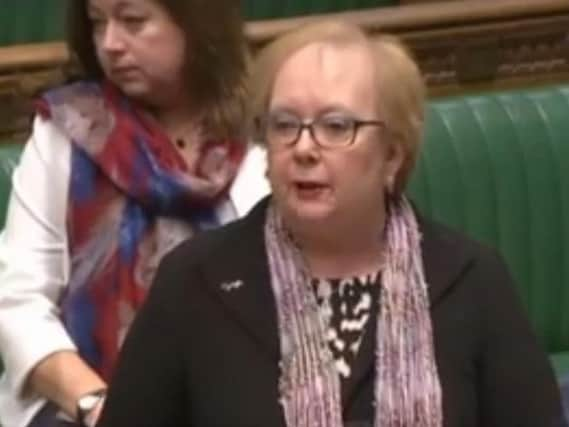SNP MP blames Tory government for British Steel collapse


A breakdown in rescue talks between the government and British Steel's owners Greybill over a request for a £30 million emergency loan, has seen the company enter insolvency, endangering 5,000 jobs directly, and putting a further 20,000 in the supply chain at risk.
The government's Official Receiver has taken control of the company as part of the liquidation process and a search for a buyer has already begun.
Advertisement
Hide AdAdvertisement
Hide AdToday the SNP said the government was to blame for the firm's collapse, and warned of a potential knock on effect on Scottish firms.
SNP MP Marion Fellows said: “The Tories had an opportunity to take action to provide support for the steel industry and to protect the thousands of jobs that are on the line. Instead, they have failed the steel industry and they have put at real risk people’s jobs and livelihoods.
“The blame for this tragic move lies squarely at the door of the Tory government. With British Steel citing Brexit-related issues, it is clear that the Tories' Brexit obsession and failure to get on with the day job is actively harming the ability of businesses to operate and thrive."
British Steel had cited a slump in orders from Europe due to uncertainty over Brexit as a major factor that had impacted its business, and it had also been affected by the weakness of the pound since the EU referendum and the escalating US-China trade war.
Ms Fellows, MP for Motherwell and Wishaw, said that the Scottish Government had proved its commitment to steel after it brokered the Liberty steel deal in 2017, saving two plants.
She added: “Since the EU referendum more than three years ago, small and large businesses have been warning of the detrimental impact Brexit will have on them. Those warnings have fallen on deaf ears.
“Throughout the entire Brexit process, the voice and interests of businesses - and of devolved governments, including Scotland - have been ignored and side-lined."
Private equity firm Greybull Capital bought British Steel for a nominal £1 during the depths of the steel crisis in 2016 and it had recently returned to profit.
Advertisement
Hide AdAdvertisement
Hide AdBusiness Secretary Greg Clark said the government had shown its "willingness to act", having provided the firm with a £120m bridging facility in April to meet EU emission rules. But he added: "The government can only act within the law, which requires any financial support to a steel company to be on a commercial basis. I have been advised that it would be unlawful to provide a guarantee or loan on the terms of any proposals that the company or any other party has made."
Labour's shadow business secretary, Rebecca Long Bailey, called for the company to be nationalised. She said: "The government must act quickly to save this strategically important industry and the livelihoods and communities of those who work in it, by bringing British Steel into public ownership.''
The Official Receiver said British Steel Ltd had been wound up in the High Court and the immediate priority was to continue safe operation of its sites in Scunthorpe and Teesside.
The company was transferred to the Official Receiver because British Steel, its shareholders and the government were not able to, or would not, support the business. That meant the company did not have to funds to pay for an administration.
"I appreciate that this is a difficult time for the company's employees and I want to thank them for their ongoing co-operation," the Receiver said. "The company in liquidation is continuing to trade and supply its customers while I consider options for the business. Staff have been paid and will continue to be employed."